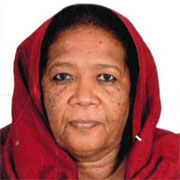
KHARTOUM, Sudan, Nov 29 (IPS) – On 15 April 2023, the outbreak of conflict between the Sudanese military and the Speedy Help Forces (RSF) drastically altered the face of Sudanese society. The combating left hundreds of lifeless, wounded, displaced folks and refugees.
Individuals went hungry, civil rights had been violated in essentially the most horrible methods, and discrimination was practiced on the premise of gender, race and tribe. Throughout the nation, infrastructure was destroyed in cities and villages – not even hospitals and faculties had been spared – and the capital Khartoum turned a shattered metropolis unfit for all times.
Based on UN estimates, some 10.9 million folks are actually internally displaced inside Sudan. One other 2.2 million folks have fled to different international locations for the reason that battle started. Meals insecurity is rife, and the fighters commonly assault and kill civilians.
Regardless of this horrific panorama, worldwide consideration to the battle has waned and humanitarian help has been stymied – earlier this month, Russia vetoed a UN Safety Council decision that known as for a ceasefire and essential humanitarian support.
Few have suffered extra throughout this conflict than girls human rights defenders (WHRDs).

Initially, my household and I had been displaced to a comparatively secure space in central Sudan and together with fellow human rights defenders, I labored as a volunteer in shelter centres, contributing to offering providers to the displaced and elevating consciousness of civil rights.
After the RSF invaded the realm, we had been displaced once more, and I traveled to Uganda after the safety dangers elevated when the conflict expanded. Since February 2024, I proceed my journalistic and civilian work with human rights teams and journalists to cease the conflict and shield civilians.
WHRDs in Sudan face quite a few dangers on account of this ongoing and expanded battle. They’re focused with armed threats, liquidation, and arrest; safety companies threaten to prosecute WHRDs who work in emergency rooms that present providers and help to the displaced. These threats generally lengthen to relations, too.
Safety companies stalk and pursue WHRDs, personally concentrating on them and their kin. That is very true for individuals who work within the authorized area and monitor violations; they’re commonly compelled to flee and search refuge in different areas and international locations, ensuing within the closure of authorized places of work and the lack of the fitting to work.
Sudanese WHRDs threat being accused of spying for one aspect of the conflict in opposition to the opposite, resulting in armed males confiscating their telephones in addition to elevated insecurity in utilizing social media and publicity to the chance of being hacked.
Many WHRDs are compelled to depart their houses with sick relations in harsh situations with out cash or technique of safety, and though they hate to depart their homeland, they’re compelled to hunt refuge in different international locations.
Lots of these compelled to flee their houses as a result of combating accomplish that on foot, with no belongings; they turn out to be displaced to different areas or reside with family, all the time operating the chance of violence and looting by armed males on their displacement routes.
Their freedom of motion is restricted, with threats of demise and rape by armed males and the looting of telephones, forcing them to stay silent and never reveal their violations out of concern. Consequently, they usually lose contact with family and different teams of WHRDs for lengthy intervals of time.
The ever-widening circle of combating has led to many WHRDs being subjected to repeated displacement experiences, which ends up in the evacuation of big displacement complexes that embody hundreds of individuals, together with these girls defenders and their households.
On their approach there, they’re uncovered to the hazards of bullets and shells and the damage of kids and sufferers, bringing with it a continuing feeling of terror, usually sparked by listening to extraordinary sounds.
Along with the chance of being looted and attacked, by being repeatedly compelled to depart their houses and shelters behind, girls human rights defenders ran the chance of being separated from their households and shedding job alternatives.
These harsh situations have negatively affected girls human rights defenders economically, socially and psychologically, and have affected human rights work in monitoring violations and defending and defending human rights within the midst of a lethal conflict.
The worldwide neighborhood ought to present solidarity with the folks of Sudan – particularly our girls human rights defenders – and help our efforts to cease the conflict and construct peace in Sudan.
Madiha Abdalla is a Sudanese lady human rights defender and journalist. She lately visited Eire to discuss her experiences as a part of Entrance Line Defenders’ Dublin Platform, geared toward giving a voice to human rights defenders in danger from around the globe.
IPS UN Bureau
Comply with @IPSNewsUNBureau
Comply with IPS Information UN Bureau on Instagram
© Inter Press Service (2024) — All Rights ReservedUnique supply: Inter Press Service









